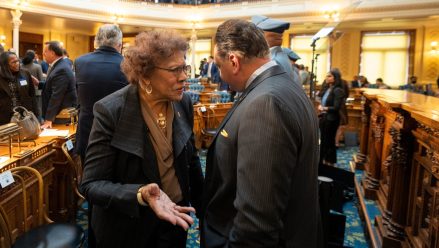Nevada authorities listed 18 defenses in its response filed Tuesday to a lawsuit from prediction market Kalshi, arguing that state gaming laws don’t conflict with the Commodity Exchange Act and that the exchange is acting in bad faith.
The response comes in a lawsuit in the U.S. District Court for the District of Nevada stemming from a cease-and-desist order issued by the state against Kalshi for offering event contracts on sports. The state argues these contracts, where a player can stake money on whether a certain sporting outcome occurs, are an unlicensed form of sports betting.
Kalshi, which is registered with the Commodity Futures Trading Commission that regulates commodities, contends that these markets are legitimate financial products and that states do not have jurisdiction to ban them.
Nevada’s defenses against Kalshi
Many of Nevada’s cited defenses were also made when Kalshi successfully sought an injunction to prevent the state from enforcing its cease-and-desist order.
Likely to be of particular importance are Nevada’s 13th, 14th and 15th defenses. They maintain that “Congress did not intend to preempt state gaming laws with the enactment of the Commodity Exchange Act,” that the “presumption against preemption” means the court should not assume Congress meant to preempt existing laws without clear evidence, and that “Nevada State Gaming Laws do not conflict with the Commodity Exchange Act.”
The state also argued that New York-based Kalshi’s claim is barred by immunity, which prevents states from being sued in federal court by citizens of other states.
In addition, it said Kalshi had committed judicial estoppel (relying on a legal argument that contradicts previous arguments it made) and collateral estoppel (attempting to relitigate an issue that has already been decided).
The response adds that Kalshi “cannot show that it will suffer irreparable harm” from Nevada’s actions and “has failed to mitigate any alleged harm.” It also says the state is immune from lawsuits against any official act or discretionary act that state authorities perform.
Further defenses include the doctrine of unclean hands, which prevents those acting in bad faith from seeking relief, as well as the Tenth Amendment, which gives powers not specifically delegated to the federal government to the states.
Three defenses are largely technical issues. Nevada claims that Kalshi failed to properly name the State of Nevada as a defendant, failed to properly serve the defendants and failed to state a claim upon which relief can be granted.
The response says Nevada will also “incorporate and assert” any arguments made by intervenors, such as the Nevada Resorts Association, which the court allowed to be dealt in on the case, and that it reserves the right to offer further defenses.
The response didn’t outline details of the state’s legal arguments. Instead, most of the text simply addressed each line of Kalshi’s complaint to indicate whether Nevada authorities admitted to or denied the claims made by the prediction exchange.






